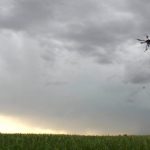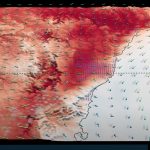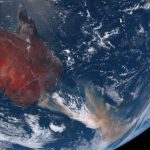 August 17, 2021 10:38 am
Published by Climate Extremes
August 17, 2021 10:38 am
Published by Climate Extremes
The ocean’s much larger heat capacity acts as “memory” suppressing the atmosphere’s “high-frequency variability” (over time scales of weeks) while producing oceanic motions that vary over longer time scales. This paradigm aims to explain how low-frequency variability emerges in the ocean. But, recently, this paradigm has been challenged.
 August 2, 2021 2:54 pm
Published by Climate Extremes
August 2, 2021 2:54 pm
Published by Climate Extremes
Climate change is affecting the amount of water evaporating (from soils and surfaces) and transpiring (evaporating through plant leaves) from the land surface. Trends derived from DOLCE V3 show clear increases in ET since 1980 over the majority of the Earth’s surface.
 July 19, 2021 4:05 pm
Published by Climate Extremes
July 19, 2021 4:05 pm
Published by Climate Extremes
CLEX researchers and colleagues combined high-resolution regional climate projections with a process-based hazelnut simulation model to predict future hazelnut yield in Australia.
 July 16, 2021 10:12 am
Published by Climate Extremes
July 16, 2021 10:12 am
Published by Climate Extremes
The overarching goal of the Colorado State University Convective CLoud Outflows and UpDrafts Experiment (C3LOUD-Ex) was to enhance our understanding of deep convective storm processes and how they are represented in numerical models. Pivotal to the experiment was a novel “Flying Curtain” strategy.
 July 14, 2021 2:23 pm
Published by Climate Extremes
July 14, 2021 2:23 pm
Published by Climate Extremes
This study looks at 6 months of under-ice zooplankton observations from the N-ICE2015 expedition from January to June 2015 in the Eurasian sector of the Arctic Ocean north of Svalbard.
 July 14, 2021 1:46 pm
Published by Climate Extremes
July 14, 2021 1:46 pm
Published by Climate Extremes
This research uses Sydney, Australia’s largest city, as a test case for our new configuration of the Weather and Research Forecasting model run at a very high resolution of 800 m with a new urban classification scheme that describes the complexity of Sydney’s built environment.
 July 14, 2021 1:23 pm
Published by Climate Extremes
July 14, 2021 1:23 pm
Published by Climate Extremes
In this study, CLEX researchers and colleagues showed that the North Atlantic sea-surface temperature response to ENSO is nonlinear with respect to the strength of the sea-surface temperature forcing in the tropical Pacific.
 July 13, 2021 2:59 pm
Published by Climate Extremes
July 13, 2021 2:59 pm
Published by Climate Extremes
CLEX researchers used data from a wind profiler radar pair at Darwin, Australia, to determine the characteristics of individual up- and downdrafts observed at the site. They found updrafts with 5km vertical heights with extreme rain rates.
 June 17, 2021 8:31 am
Published by Climate Extremes
June 17, 2021 8:31 am
Published by Climate Extremes
CLEX researcher Navid Constantinou and collaborators developed GeophysicalFlows.jl, a Julia package that provides solvers for geophysical fluid dynamics problems in periodic domains.
 May 27, 2021 12:11 pm
Published by Climate Extremes
May 27, 2021 12:11 pm
Published by Climate Extremes
An unusual southern stratospheric warming event amplified the conditions that led to the Black Summer bushfires of 2019/20. CLEX researchers explored how frequently these rare warming events may occur with climate change.










